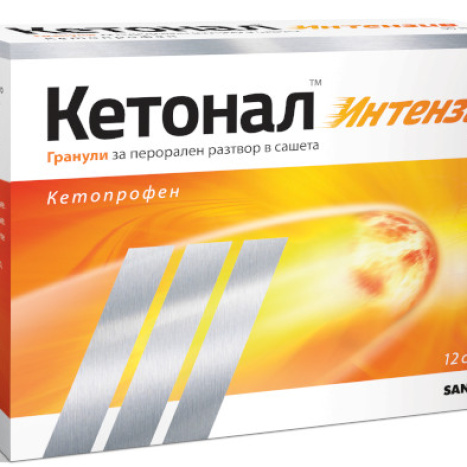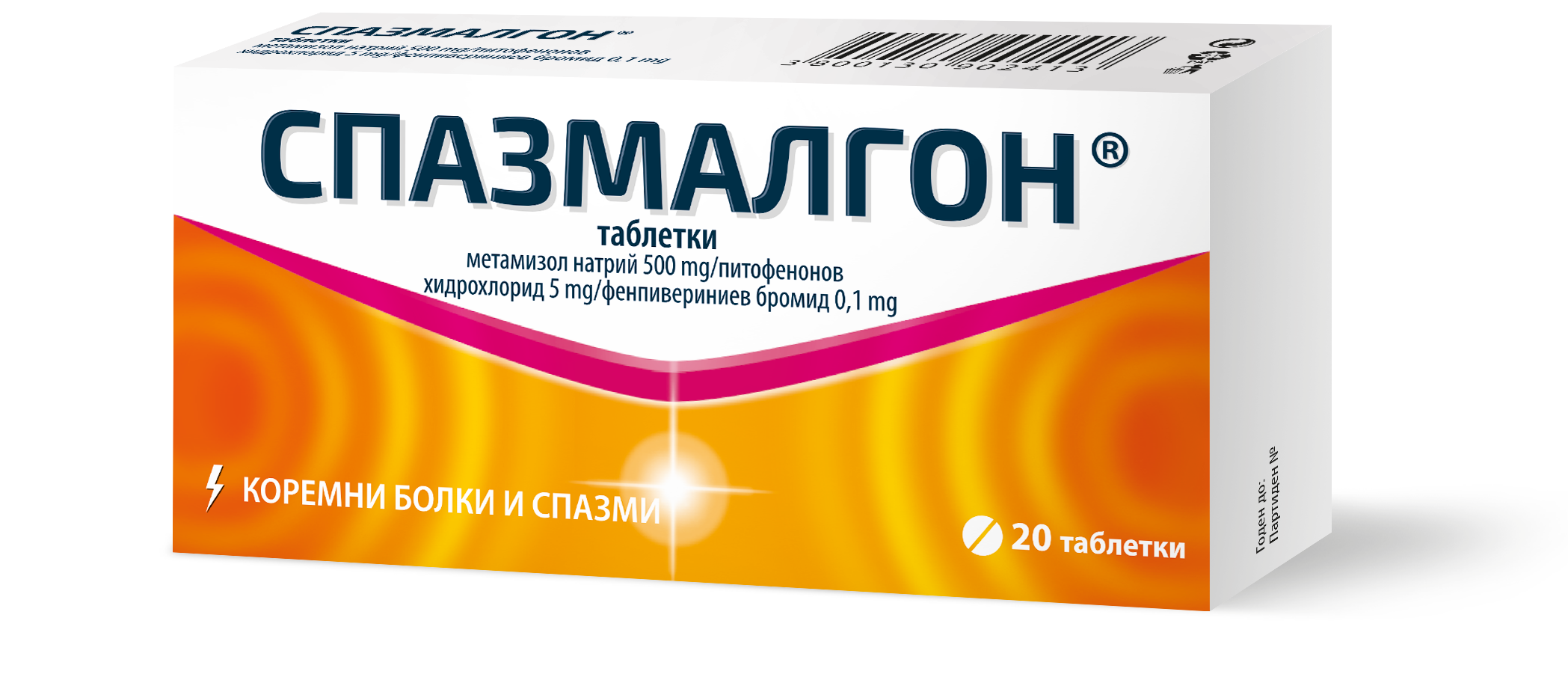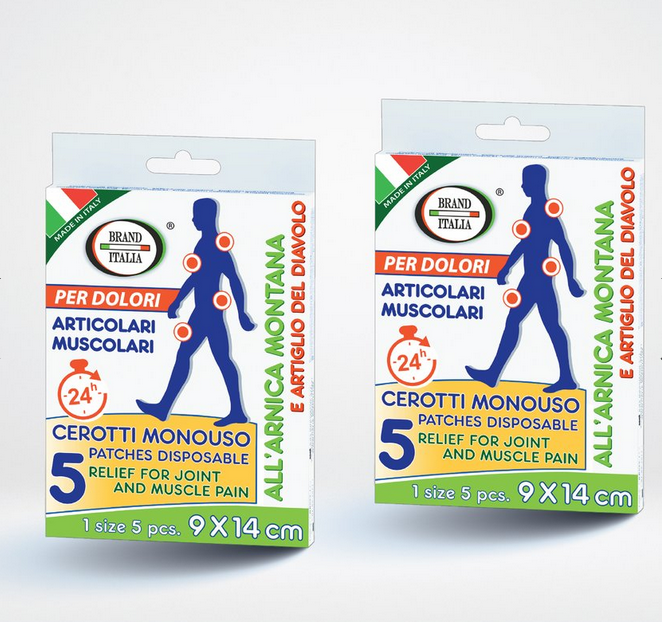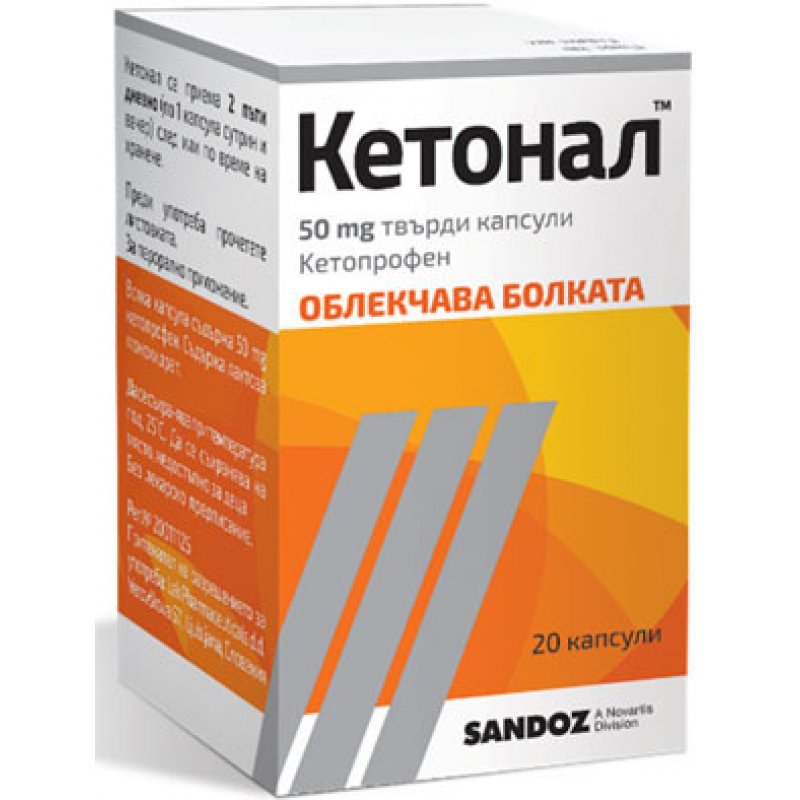KETONAL INTENSIVE 50mg x 12 sachets
KETONAL INTENSIVE sachet 50 mg * 12
Leaflet: user information
Ketonal 25 mg granules for oral solution in sachets
Ketonal Intensive 50 mg granules for oral solution in sachets
ketoprofen
Ketonal 25 mg granules for oral solution in sachets
Ketonal Intensive 50 mg granules for oral solution in sachets
ketoprofen
Read all of this leaflet carefully before you start taking this medicine because it contains important information for you.
Always take this medicine exactly as described in this leaflet or as your doctor or pharmacist has told you.
Keep this leaflet. You may need to read it again.
If you need further information or advice, ask your pharmacist.
If you get any side effects, tell your doctor or pharmacist. This also includes any possible side effects not described in this leaflet. See point 4.
You should seek medical attention if you do not feel better or if your condition worsens:
after 3 days in adolescents;
after 3 days for fever and after 5 days for pain in adults.
What this leaflet contains
1. What Ketonal / Ketonal Intensive is and what it is used for
2. What you should know before taking Ketonal / Ketonal Intensive
3. How to take Ketonal / Ketonal Intensive
4. Possible side effects
5. How to store Ketonal / Ketonal Intensive
6. Contents of the package and additional information
1. What Ketonal / Ketonal Intensive is and what it is used for
Ketonal / Ketonal Intensive contains the active substance ketoprofen lysine salt. It belongs to a group of drugs called nonsteroidal anti-inflammatory drugs, or NSAIDs.
Ketonal / Ketonal Intensive is used in adolescents aged 16 years and older and in adults for the symptomatic and short-term treatment of mild to moderate acute pain such as:
headache;
toothache;
menstrual pain;
pain after minor sprains and strains.
Adults: You should seek medical attention if you do not feel better or if your condition worsens after 3 days for fever or 5 days for pain.
Adolescents: You should seek medical attention if adolescents do not feel better or their condition worsens after 3 days.
2. What you should know before taking Ketonal / Ketonal Intensive
Do not take Ketonal / Ketonal Intensive if:
you are allergic to ketoprofen or to any of the other ingredients of this medicine (listed in section 6);
you have had an allergic reaction in the past after taking acetylsalicylic acid or a pain reliever - ketoprofen, ibuprofen or diclofenac, such as:
asthma, difficulty breathing;
swelling of the face, lips, tongue, or throat;
hives, itchy nose with runny nose;
other type of allergic reactions.
Serious skin reactions, rarely fatal, have been observed in these patients.
stomach/duodenal ulcers or have had gastrointestinal bleeding, ulcer or perforation in the past;
diseases of the digestive tract called ulcerative colitis or Crohn's disease;
severe heart failure;
severely reduced liver or kidney function;
tendency to bleed;
during the last 3 months of pregnancy.
You should not use Ketonal / Ketonal Intensive without the express recommendation of your doctor if your stomach is at increased risk, for example if you are elderly or you are using certain other medicines such as anticoagulants, antithrombotics, corticosteroids, other NSAIDs or selective reuptake inhibitors serotonin reuptake inhibitors (SSRXs) (see also sections "Warnings and precautions" and "Other medicines and Ketonal" below).
Warnings and precautions
Talk to your doctor or pharmacist before taking Ketonal / Ketonal Intensive if you are / have:
asthma combined with prolonged inflammation in the nose or sinuses and/or with nasal polyps;
heart disease or have had in the past, such as mild to moderate congestive heart failure. Signs of such heart failure are fluid accumulation in the lungs, abdominal organs, arms, or legs. See also the fourth subparagraph in point 2 “Do not take Ketonal”.
mild or moderate kidney or liver disease, including changes in liver or kidney function tests. See also the fifth subsection in point 2 "Do not take Ketonal / Ketonal Intensive".
high blood pressure, or have had in the past;
diseases of the blood vessels in the arteries of the arms and/or legs, or the brain;
diabetes or high cholesterol;
smoking;
old age. Elderly patients are at increased risk of adverse reactions to pain relievers such as ketoprofen, particularly gastrointestinal bleeding and perforation, which can be fatal. Therefore, elderly patients should be carefully monitored for any unusual symptoms, especially gastrointestinal bleeding, especially at the beginning of treatment. Your doctor will monitor you carefully.
Gastrointestinal bleeding, ulcers and perforation, in some cases fatal, have been reported during treatment with all analgesics such as ketoprofen. Such effects have been observed at any time, with or without warning symptoms, or with serious gastrointestinal events in the past.
The risk of gastrointestinal bleeding, ulceration, or perforation increases with increasing dose. It is greater in patients with a history of ulcers, especially if associated with bleeding or perforation, and in elderly patients. See also point 2 "Do not take Ketonal / Ketonal Intensive". Ketoprofen may be associated with a greater risk of serious gastrointestinal toxicity, especially at high doses.
Your doctor may recommend treatment with preventive medications if these conditions apply to you. This also applies if you need additional therapy with low-dose acetylsalicylic acid or other medicines that may increase the risk of stomach and intestinal damage.
Stop taking Ketonal / Ketonal Intensive immediately and inform your doctor if signs of gastrointestinal bleeding, ulcers or perforation occur. See section 4 “Possible side effects”.
Medicines such as Ketonal / Ketonal Intensive may be associated with a slightly increased risk of heart attack or stroke. Any risk is more likely with high doses and long-term treatment. Do not exceed the recommended dose or duration of treatment. Tell your doctor or pharmacist if you have heart problems, if you have had a stroke or are at risk of these conditions, for example if:
you have high blood pressure, diabetes or high cholesterol, or
you smoke.
Serious skin reactions with redness and blistering, some of which are fatal, have been reported very rarely with the use of pain relievers such as ketoprofen. See section 4 “Possible side effects”. If these reactions occur, in most cases this happens within the first month of treatment, immediately stop taking Ketonal / Ketonal Intensive and inform the doctor about the appearance of a skin rash, mucosal lesions or other signs of hypersensitivity.
Adverse reactions can be minimized by using the lowest effective dose for the shortest duration necessary to control symptoms. Do not exceed the recommended dose or duration of treatment.
Ketonal / Ketonal Intensive can mask the symptoms of infection, for example fever.
Children and adolescents
Do not give this medicine to children under 16 years of age.
Your doctor may perform frequent examinations when this medicine is taken by adolescents aged 16 years or older.
Other medicines and Ketonal / Ketonal Intensive
Tell your doctor or pharmacist if you are taking, have recently taken or might take any other medicines.
Ketonal / Ketonal Intensive is not recommended if you use:
other pain relievers such as:
drugs similar to ketoprofen, such as ibuprofen, diclofenac, naproxen;
acetylsalicylic acid, in doses to treat pain and inflammation, or to reduce high fever;
medicines for the treatment of pain, inflammation or rheumatism with active substances whose names end in "coxib".
medicines that suppress blood clotting or dissolve blood clots such as acetylsalicylic acid, warfarin, clopidogrel, ticlopidine, heparin.
lithium, used to treat depression and mental disorders.
methotrexate, used to treat cancer, in doses of 15 mg per week or more.
certain medicines to treat seizures (epilepsy), such as phenytoin.
medicines called sulphonamides in certain liquid tablets or to treat bacterial infections.
You should be closely monitored by your doctor if the simultaneous use of Ketonal with the above drugs cannot be avoided.
Other medicines can also be affected or affect the treatment with Ketonal / Ketonal Intensive. Therefore, you should always consult your doctor or pharmacist before using Ketonal / Ketonal Intensive with other medicines. This applies in particular to:
medicines that increase excretion by the kidneys and lower blood pressure, which are also called "water tablets".
methotrexate, for the treatment of cancer, severe joint inflammation and the skin disease psoriasis, in doses below 15 mg per week.
medicines to lower high blood pressure, with an active substance whose name ends in "pril" or "sartan", for example losartan, or "olol".
medicines to treat depression called selective serotonin reuptake inhibitors.
corticosteroids, which are used to treat inflammation, allergy, prevent rejection of a transplanted organ, eg cortisone.
pentoxifylline, which is used to treat muscle pain due to disease of the blood vessels in the arms and/or legs.
probenecid, which is used to treat gout and high levels of uric acid in the blood.
cyclosporine and tacrolimus, which are used to suppress the immune system, for example after an organ transplant.
medicines to dissolve blood clots.
zidovudine to treat AIDS.
medicines to treat diabetes such as glibenclamide or glimepiride.
Pregnancy, lactation and fertility
Do not take Ketonal / Ketonal Intensive during the last 3 months of pregnancy.
Do not take Ketonal / Ketonal Intensive during the first 6 months of pregnancy, unless your doctor considers it important to take it.
It is not recommended to breastfeed if you are taking Ketonal / Ketonal Intensive. It is not known whether ketoprofen passes into breast milk.
Tell your doctor if you are planning to become pregnant or if you are having trouble getting pregnant. Medicines such as ketoprofen can make it harder to get pregnant,
Driving and using machines
In general, Ketonal / Ketonal Intensive does not affect the ability to drive and use machines. However, do not drive or operate machinery if you experience side effects such as dizziness, drowsiness, fainting or blurred vision.
3. How to take Ketonal / Ketonal Intensive
Always take this medicine exactly as described in this leaflet or as your doctor or pharmacist has told you. If you are not sure, ask your doctor or pharmacist.
The recommended dose is:
Adults and adolescents over 16 years of age
Ketonal 25 mg granules for oral solution in sachets
One sachet, up to three times a day.
Ketonal Intensive 50 mg granules for oral solution in sachets
Half a double sachet, up to three times a day or one whole double sachet, up to twice a day.
The interval between doses should not be less than 8 hours.
Adverse reactions can be minimized by using the lowest effective dose needed to control symptoms for the shortest time possible. Do not exceed the dose or duration of treatment recommended by your doctor.
Use in the elderly
The dose will be determined by the doctor, who will consider whether to possibly reduce the above doses. See section 2 "Warnings and precautions".
Decreased liver function
Your doctor may reduce the dose if your liver function is mildly to moderately impaired.
Do not take Ketonal / Ketonal Intensive if you have severely impaired liver function.
Method of use
Ketonal 25 mg granules for oral solution in sachets
Open the sachet.
Empty its contents into a glass with about 50 ml of water, which is the volume of water for each sachet used.
Mix well for about 30 seconds until the granules dissolve.
Ketonal Intensive 50 mg granules for oral solution in sachets
Open the sachet along the line marked 'half dose' to obtain the half sachet dose.
Open the sachet along the line marked 'full dose' to get a dose from a whole sachet.
Empty the contents of the sachet into a glass with about 100 ml of water.
Mix well for about 30 seconds until the granules dissolve.
Take immediately after preparation, during a meal.
Duration of use
Adults: You should seek medical attention if you do not feel better or your condition worsens after 3 days, in case of fever, or after 5 days, in case of pain.
Adolescents: You should seek medical attention if the adolescent does not feel better or his condition worsens after 3 days.
If you have taken more than the required dose of Ketonal / Ketonal Intensive
Tell your doctor immediately or go to the nearest hospital.
In most cases, an overdose leads to lethargy, drowsiness, nausea, vomiting or stomach pain in the upper abdomen.
If you forget to take Ketonal / Ketonal Intensive
Take the missed dose as soon as you remember. However, if it is almost time for the next dose, do not take the missed dose. Do not take a double dose to make up for a missed dose.
If you have any further questions related to the use of this medicine, ask your doctor or pharmacist.
4. Possible side effects
Like all medicines, this medicine can cause side effects, although not everybody gets them.
Stop taking Ketonal / Ketonal Intensive and go to your doctor or hospital immediately if you have / get:
Rare (may affect up to 1 in 1,000 people):
asthma attack;
severe, burning pain in stomach, with feeling of emptiness and hunger. This could be due to a stomach/intestinal ulcer.
Not known frequency:
vomiting blood, severe stomach pain, or passing dark, tar-black stools, which are signs of bleeding or perforation of the stomach/intestines;
blistering, peeling, or bleeding anywhere on the skin, with or without an itchy, raised rash. This includes the lips, eyes, mouth, nose, genitals, palms of the hands or soles of the feet. This may also be accompanied by flu-like symptoms. You may have a serious skin problem that requires urgent medical treatment, including Stevens-Johnson syndrome and toxic epidermal necrolysis;
blood in the urine, a change in the amount of urine passed, or sweating, especially on the legs, ankles, or feet. This may be due to serious kidney problems;
chest pain (a sign of a heart attack) or sudden severe headache, nausea, dizziness, numbness, inability or difficulty speaking, paralysis (a sign of a stroke). Medicines such as Ketonal / Ketonal Intensive may be associated with a slightly increased risk of heart attack or stroke. See section 2 “Warnings and precautions”,
signs of severe allergic reactions, such as:
swelling of the face, lips, mouth, throat, or larynx that causes wheezing or difficulty swallowing or breathing;
chest tightness, rapid heartbeat, drop in blood pressure leading to shock;
itching, rash;
spasms of the larynx that cause difficulty breathing;
getting infections more easily than usual, which may be due to a serious blood disorder called agranulocytosis;
seizure.
Tell your doctor as soon as possible if you have any of the following side effects:
Rare (may affect up to 1 in 1,000 people):
unusual skin sensations, such as tingling, numbness, tingling, burning, or tingling;
pale skin, tiredness, weakness or dizziness, possibly caused by a lack of red blood cells due to bleeding;
blurred vision;
yellowing of the skin or the whites of the eyes, which may be a sign of liver problems.
Not known frequency:
bruising more easily than usual or bleeding that lasts a long time. This could be a serious blood problem, for example a low number of platelets in the blood;
worsening of intestinal diseases called Crohn's disease or colitis;
skin reaction to light or sunlamps.
Other side effects may occur with the following frequency:
Common (may affect up to 1 in 10 people):
indigestion, stomach pain;
nausea, vomiting.
Uncommon (may affect up to 1 in 100 people):
inflammation of the stomach lining;
constipation, diarrhea, gas;
skin rash, itching;
water retention, which can cause swelling of the hands or feet;
headache, dizziness, or drowsiness;
fatigue or malaise.
Rare (may affect up to 1 in 1,000 people):
noise in the ears;
weight gain;
sores and inflammation in the mouth.
Not known frequency:
heart failure, signs of which may include shortness of breath when lying down, swelling of the feet or legs;
feeling of heart palpitations;
high or low blood pressure;
redness, which is a sign of dilated blood vessels;
fast heartbeat;
mood swings;
overexcitement;
difficulty falling asleep;
changes in taste sensations;
acids;
swelling around the eyes;
runny nose, itching, sneezing and stuffy nose;
hair loss;
hives, red or inflamed skin, raised rash.
Blood tests
Blood test results may show changes in your liver or kidney function.
Reporting adverse reactions
If you get any side effects, tell your doctor, pharmacist or nurse. This includes all possible side effects not described in this leaflet. You can also report side effects directly through the national reporting system to:
Medicines Executive Agency,
Damyan Gruev St. No. 8,
1303 Sofia,
Tel.: +35 928903417,
website: www.bda.bg.
By reporting side effects, you can contribute to getting more information about the safety of this medicine
5. How to store Ketonal / Ketonal Intensive
Keep out of the reach of children.
Do not use this medicine after the expiry date which is stated on the carton and sachet after EXP. The expiration date corresponds to the last day of the specified month.
Use the solution immediately after preparation.
This medicine does not require any special storage conditions.
Do not dispose of medicines down the drain or in the household waste container. Ask your pharmacist how to dispose of medicines you no longer use. These measures will help protect the environment.
6. Contents of the package and additional information
What Ketonal / Ketonal Intensive contains
Ketonal 25 mg granules for oral solution in sachets
The active substance is: ketoprofen. Each sachet contains 25 mg of ketoprofen, which corresponds to 40 mg of ketoprofen lysine salt.
The other ingredients are: mannitol (E421), povidone, mint flavor (contains maltodextrin and gum arabic), sodium chloride, saccharin sodium, colloidal silicon dioxide, anhydrous.
Ketonal Intensive 50 mg granules for oral solution in sachets
The active substance is: ketoprofen. Each sachet contains 50 mg of ketoprofen, which corresponds to 80 mg of ketoprofen lysine salt.
The other ingredients are: mannitol (E421), povidone, mint flavor (contains maltodextrin and gum arabic), sodium chloride, saccharin sodium, colloidal silicon dioxide, anhydrous.
What Ketonal / Ketonal Intensive looks like and what the package contains
White or yellowish granulate.
Ketonal 25 mg granules for oral solution in sachets
Ketonal is packaged in paper/aluminum/plastic sachets placed in a cardboard box. Types of packaging: 12, 15 and 18 sachets.
Ketonal Intensive 50 mg granules for oral solution in sachets
Ketonal Intensive is packed in double sachets of paper / aluminum / plastic, placed in a cardboard box.
Types of packaging: 6, 8, 10 and 12 double sachets.
Not all types of packaging can be put on sale.
Marketing Authorization Holder and Manufacturer
Marketing Authorization Holder:
Sandoz dd, Slovenia.
Manufacturer:
Lek dd, Slovenia;
Fine Foods & Pharmaceuticals, Italy.









